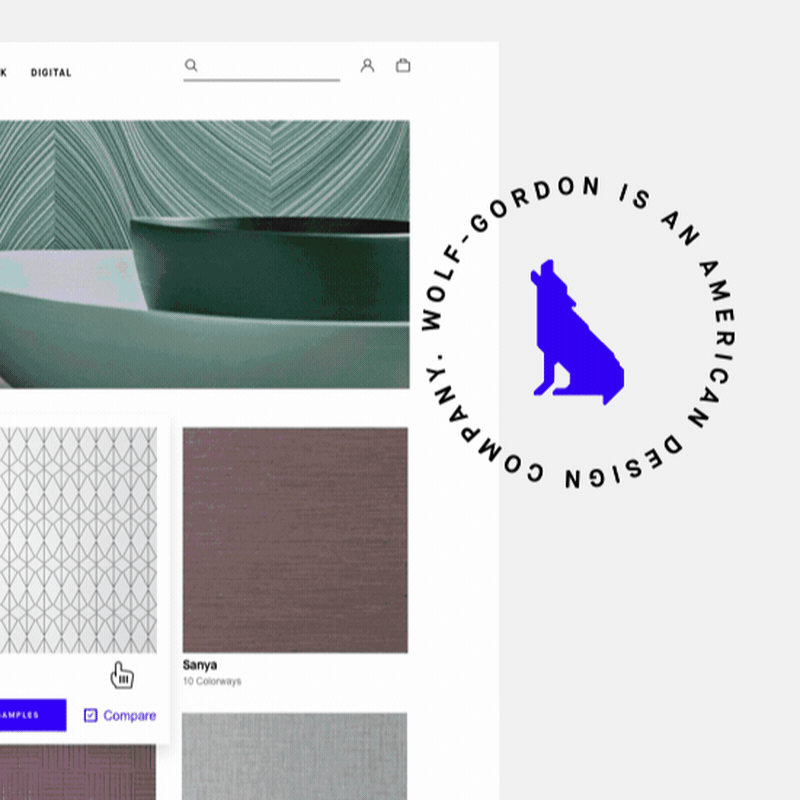NFTs: Why Should I Care?
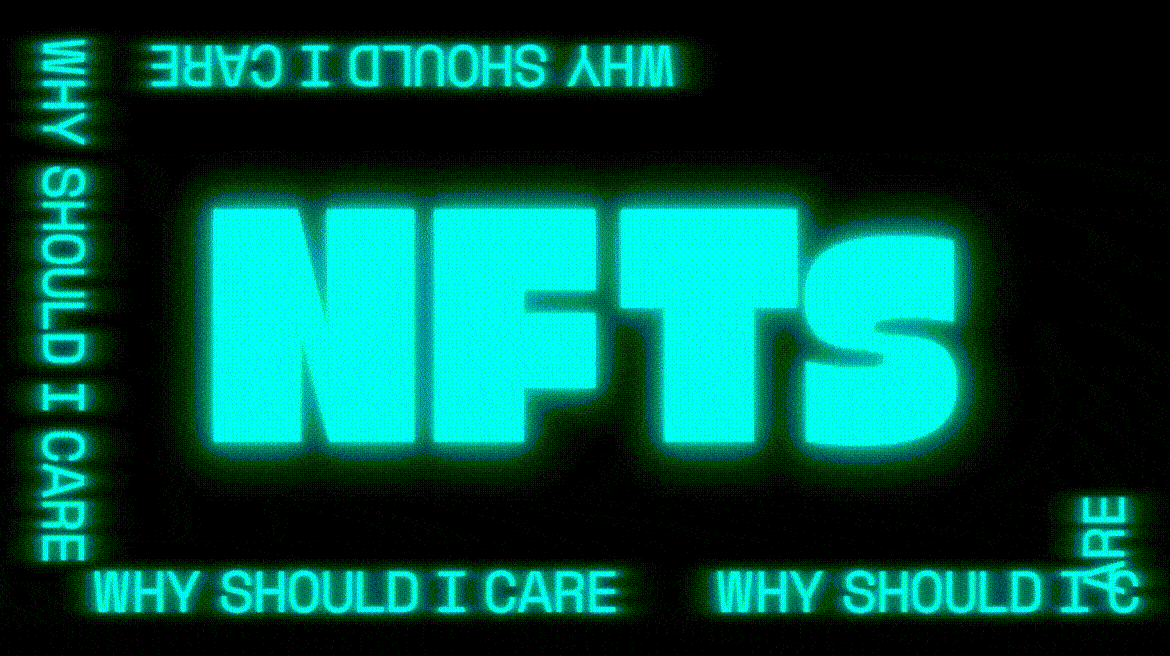
The only way you wouldn’t be convinced by this article is if you’re one of those “computers are going to kill us all” types of people. (That’s a phobia I have no argument for.)
If you’re not that type of person, here are 6 reasons why you can ignore the skeptics and confidently support Web3.
Reason you should care #1: They’re not going anywhere.
The technology brings too much utility for NFTs to just go away. It allows us to:
1. Create a unique identity for any digital asset
2. Transparently track ownership of that asset
We, for the first time as the human race, have a technologically sound way to attach a unique identity to any digital asset. Blockchain technology gives digital assets indisputable origins, properties, and other pieces of metadata — all collected in a single smart contract associated with each NFT. Smart contracts are a novel and accessible way to store information inside of digital assets.
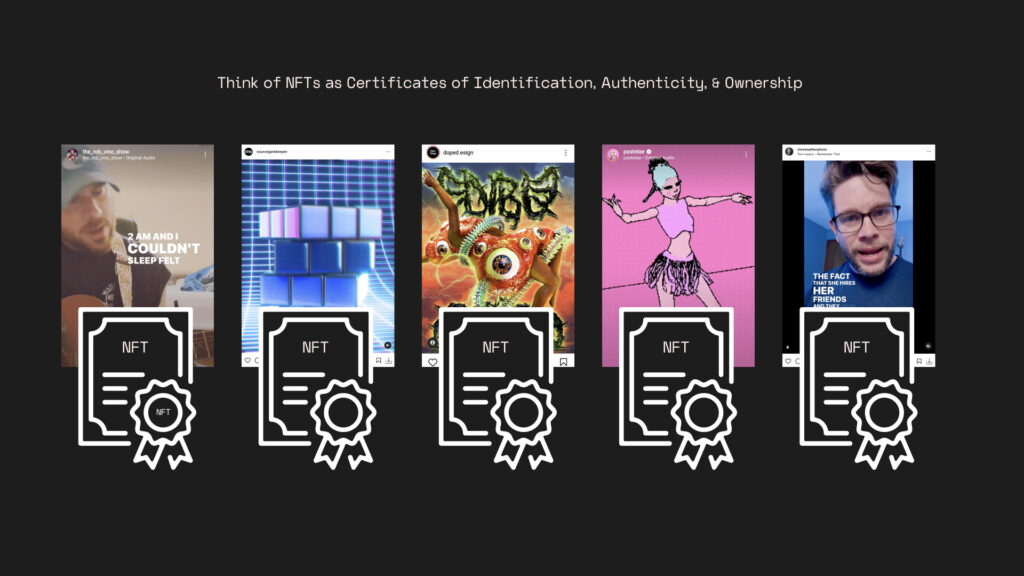
EXAMPLE
You used to create GIF icons on Iconator.com. It was early evidence of your passion for graphic design. When Iconator.com shut down for good, where did those icons go? Are they floating somewhere in the ether? Do they exist at all anymore? They don’t even appear via wayback machine. If the icons were minted as non-fungible tokens, they would have left a permanent footprint on the web. (Yes — even in 10,000 years. Blockchain technology uses thousands of computers to verify each transaction, rendering it impossible to destroy. All anyone will ever need is a device with an internet connection to find it.)
On top of all of this, they are inherently tied to decentralization. NFTs remove the middleman from many situations:
I don’t need to go through a bank to send someone money.
I don’t need to work with a record label to be a successful musician (and I get all the profits).
I don’t need to hire a lawyer to prove or protect my work’s copyrights.
Not only are NFTs supporting decentralization of the internet — they are supporting the decentralization of corporate America.
NFTs are already being used in a plethora of different ways: Community-forming tools, proof of attendance, tickets (access), coupons, rewards, and loyalty initiatives.
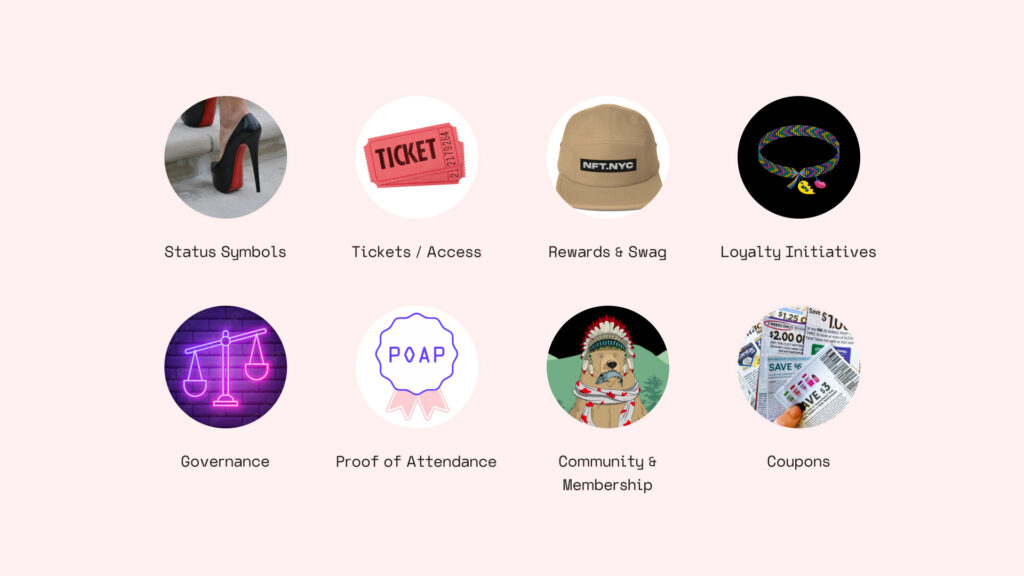
Not only will NFTs “stick around” — they’re going to store everything in the future. NFTs will take over the real estate industry (especially with the novel capability of fractionalization), healthcare, medical records, birth certificates, vehicle identification numbers (VINs), license plates, the birth of the Universal Profile (the end of passwords), and modern finance.
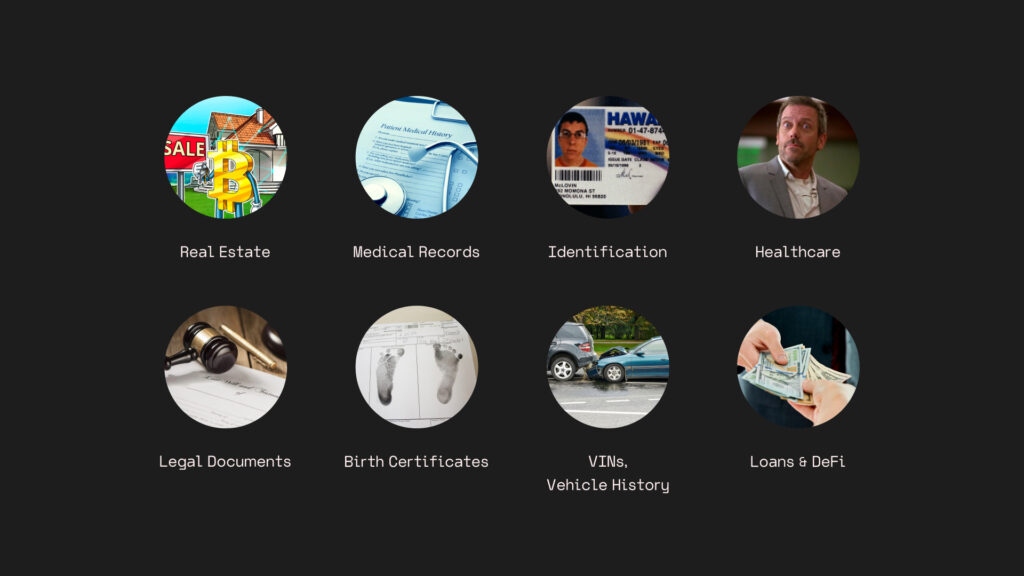
Why? Because you can’t lose the title to your car if it exists as a Non-Fungible Token (unless you lose your password — aka “recovery phrase” — but you won’t. There’s plenty of options to store those indestructibly and in ways that make it impossible to lose.)
Reason you should care #2: They are transforming the ownership economy.
NFTs are the evolution of copyright & IP law. Did you know that if you upload a photo of yourself to Instagram, Instagram (Meta) has the rights to “host, use, distribute, modify, run, copy, publicly perform or display, translate, and create derivative works” of your content?
Blockchains are sources of truth that cannot be disputed: protecting copyrights and IP of artists, technologists, thinkers, writers, and innovators.
Not only do digital assets minted as NFTs have their own identity, but they can be owned. Because the blockchain is open source, creator and ownership details can be tracked transparently through time.
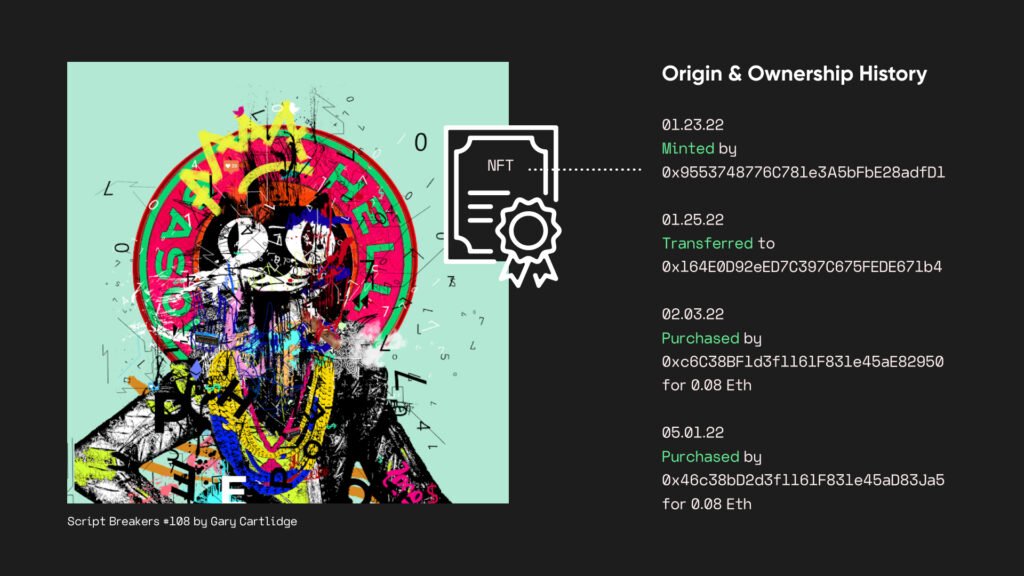
When you think about it from a copyright perspective, it just makes sense. An original creator will always be indisputable—along with every owner since. This is a huge win for creators everywhere.
I’d like to take a moment to specifically shout-out my fellow artists: For the first time, we have the ability to have full control over the pricing of our work. NFT technology is a tool to be wielded to authenticate our work on the blockchain so that it forever links to a uniquely crafted certificate of authenticity. They allow artists the ability to set their own rates and control royalties.
EXAMPLE
If two artists, a producer, and a videographer/editor collaborate on a commercial, their names and roles in the making of the commercial can be forever recorded on the blockchain by incorporating the credits into the smart contract. This is a novel and accessible way to store information inside digital assets.
On top of that, creators automatically get royalties every time they sell an NFT. This is groundbreaking for artists (as we have never had a seamless way to earn royalties!).
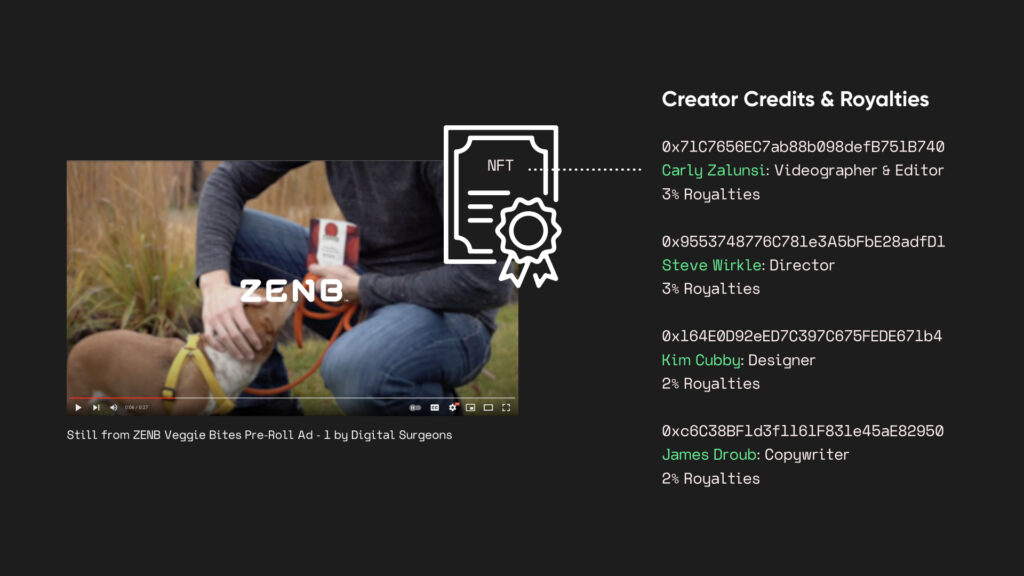
EXAMPLE
You’re an artist who enjoys selling original pieces. Someone buys a painting of yours for $1k. A year later, they sell that painting for $1.5k. They make $500. You make $0.
Now, let’s pretend your painting was minted as an NFT. You would get $150 (10%) automatically sent to your wallet when it sold for $1.5k. And, you would continue getting 10% of every sale after that. (🤯) Royalty percentages are recorded directly into an NFTs metadata (or smart contract). You can even split royalties between individual artists who collaborated on a piece together!
Reason you should care #3: They are birthing a revolution.
NFTs are changing the future of employment, healthcare, and education, due to their ability to track records and assets. In our virtual future, digital objects have real value and physical objects can own a digital identity. There is no going back.
Even if you remove the future from the equation for a moment, NFTs are currently revolutionizing sectors of our culture such as art, sports and videogames. Thousands of artists are eating multiple meals a day for the first time in their lives. Fans can own some of their favorite moments in sports history. People are playing games to earn money that they can exchange for wearables or trade for cold, hard cash. These industries haven’t even begun to see the impact NFT technology will bring them as it continues to rapidly progress.
London Trade Art says it best when they say that “blockchain not only democratizes individual ability to buy NFTs, it also democratizes access to new markets for all artists, regardless of location.”
Reason you should care #4: Knowledge of the NFT space will keep you relevant.
It’s going to get very difficult to remain relevant without engaging with NFTs and, subsequently, Web3. History can prove it: When websites first emerged, brands that didn’t adhere to this new wave of technology didn’t make it (we miss you, Blockbuster). Now, in mainstream Web2, brands who haven’t adopted a social media strategy are currently facing a slow death. It will be the same with Web3.
Besides, if the technology exists — why wouldn’t you use it?
And it probably doesn’t have to be said, but when Nike buys an NFT company… it’s time to pay attention. Brands everywhere are coming up with new and exciting ways to use NFT technology every day — it’s only beneficial to teach yourself the core aspects of this new world.

EXAMPLE
Remember that family-owned used-car shop that used to be the neighborhood favorite? The one where the owner laughed when asked if he’d be getting a website back in 2002? What happened? The car shop went out of business because they failed to see the value in having and maintaining a digital presence. They didn’t know their customers or competitors as well as they thought.
Reason you should care #5: They create loyalty among your community.
NFTs inherently foster community. People love collecting — they always have, and they always will. People bond with other people over things that they collect — whether it’s records by a certain artist, classic cars, or Beanie Babies. NFTs are similar in this way. They indicate which “club” you’re in, and as it extends to brands, who you support and who you’re a fan of. There are countless Discords that have been established for the holders of certain NFTs to join and chat with one another, and holders are usually rewarded over time just for holding the token in their wallet. If this doesn’t keep you hooked, what can?
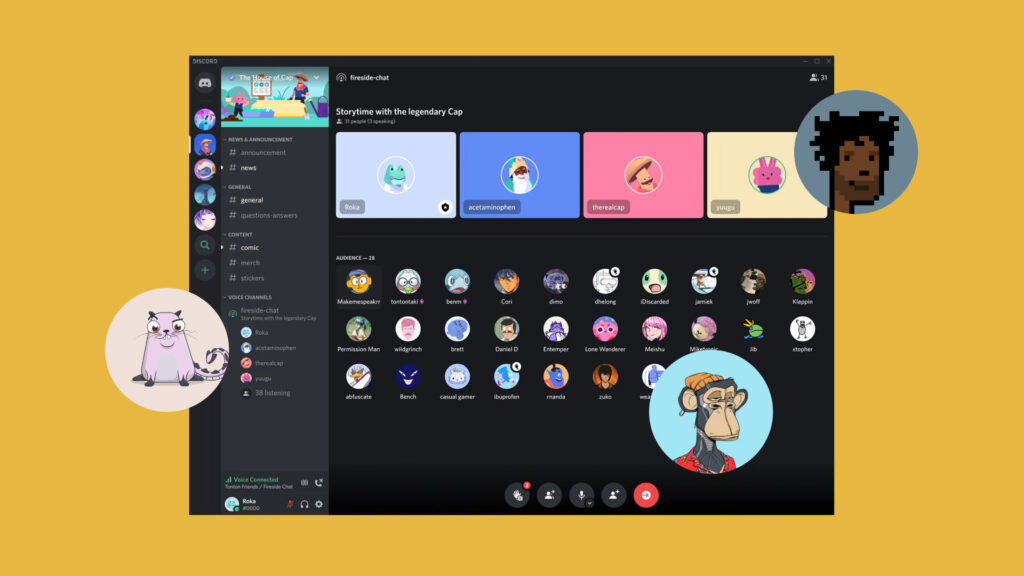
EXAMPLE
BAYC (Bored Ape Yacht Club) holders get access to lavish events and a monthly coffee subscription. A Bored Ape is a status symbol as much as it is an all-access pass. Most recently, they launched their own metaverse, “Otherside”, where BAYC holders can buy digital land in a custom universe.
NFTs have unlocked an entirely new type of community loyalty. Because NFTs are digital ownership, project communities will begin to feel like they own a part of the project or brand (and in some ways actually do). And when you’re a partial owner of something, your loyalty to it increases.
EXAMPLE
Harley Davidson owners are arguably quite loyal to the Harley brand. What if Harley tokenized every bike they’ve ever made, and you could only get the NFT representing each model by actually owning the Harley. It’s the concept of car collecting, but the vehicle lives forever. Maybe the NFT is a 3D model of the vehicle in a 360 view. Imagine the value it would bring to a Harley loyalist to know that they could show off every Harley they’ve ever owned without having to dig through old photo archives!
The NFT would be permanently stored in their wallet, allowing the bike and all of the memories that were made with it to live on longer than the bike itself — forever in the blockchain as a representation of not only the bike, but all of the amazing memories made while riding it!

The idea that excites me most, however, is the idea of governance tokens. Governance tokens are tokens that grant voting power to the token holders so that they are included in brand or company decisions. These decisions could be as small as the next shoe design or as large as a boardroom decision — like where to source material or open a new location. (These tokens are important in Decentralized Finance, or DeFi, where power balance is required.)
Brands that are already doing this include SuperRare (Art gallery), ENS (Web3 naming service), and MetaFactory (decentralized fashion brand). SuperRare allows their token holders to vote on which new spaces should be created within the platform. ENS allows token holders to vote on protocol changes, and MetaFactory allows voting on product launches, commercial partnerships and brand strategy.
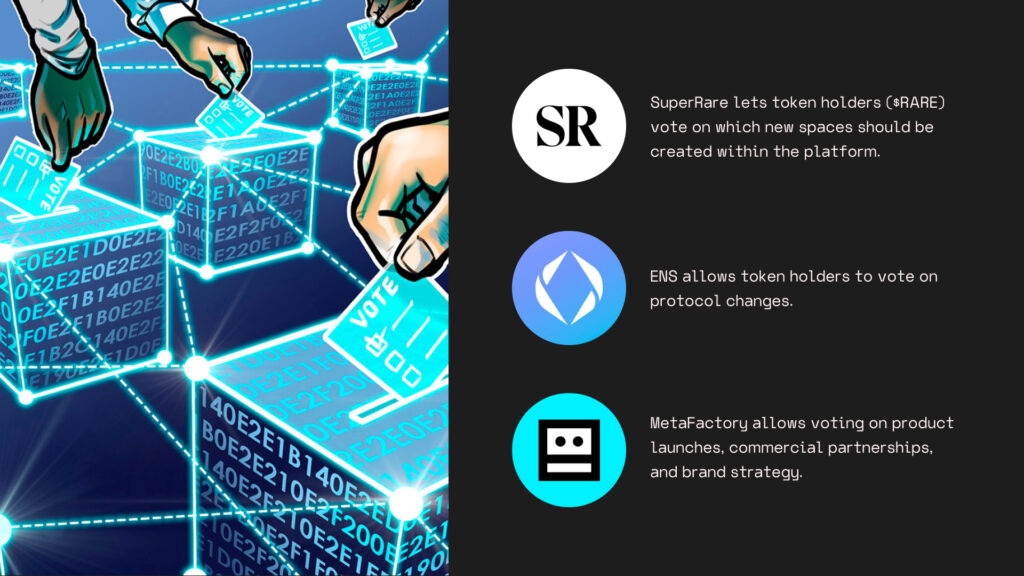
Governance tokens are a great way to include the fans of your brand in the decisions your company makes. This community of decision-makers will be natural advocates of your brand and entice others to join the community. (And as marketers, we all know there is no more powerful a source of broadening your customer community than through loyal brand advocates).
In the case of one Avatar project, nouns.wtf, all noun owners automatically become a shareholder in the Nouns DAO (Decentralized Autonomous Organization).
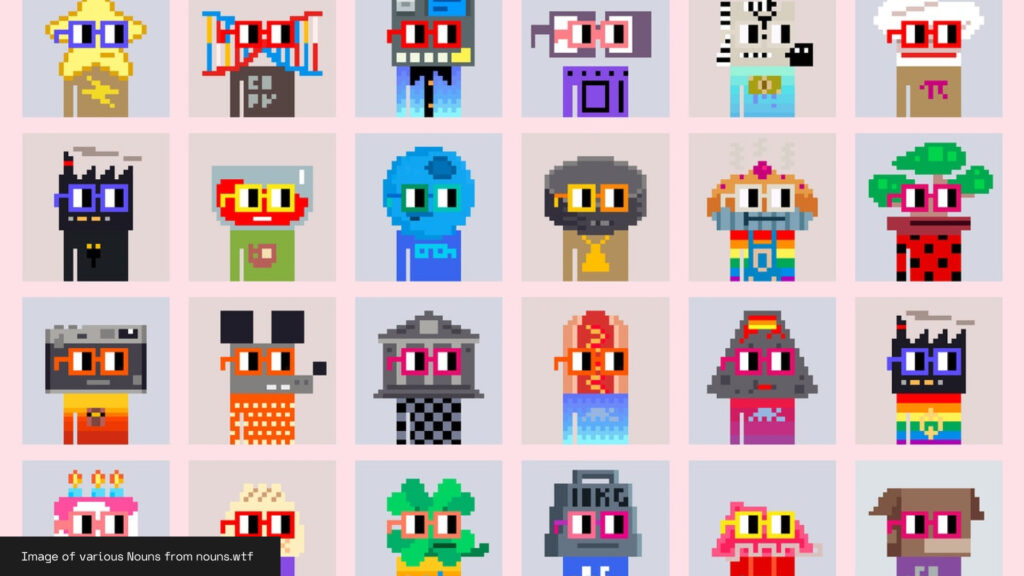
If that doesn’t make you feel loyal to a project or brand, I’m not sure what can.
Communities have always existed. In middle school and high school we join clubs based on our personal interests. People who live in the same apartment are a part of a community. Same for those who drive the same kind of car or attend the same fitness classes. Our interests, traits, and qualities form micro-communities without our help at all. It just happens.
There are smaller examples of NFTs forming communities as well, like communities that form around POAP tokens (Proof of Attendance Protocol) because they attended the same event, or Discord communities formed for anyone with a particular NFT in their wallet.
Reason you should care #6: They can make you money.
I don’t really need to explain this one, but let me just say this: Digital goods will be the preferred goods in the future. They’ve got easy-to-track data and no delivery/product needed. We’re spending more and more time online as a species and it’s not going to stop. More and more time online will accelerate the preference to sell digitally.
Not to mention — the popularity of digital goods is rising. Whether it’s profile pics or wearables, people love to express identity online.
EXAMPLE
Going back about a decade, record labels existed to protect copyrights of artists signed under them, and had lawyers to prove that X artist created a song, but now, there are no lawyers needed. The blockchain is a source of truth that cannot be argued with, protecting copyrights of artists, technologists, thinkers, writers, and innovators.
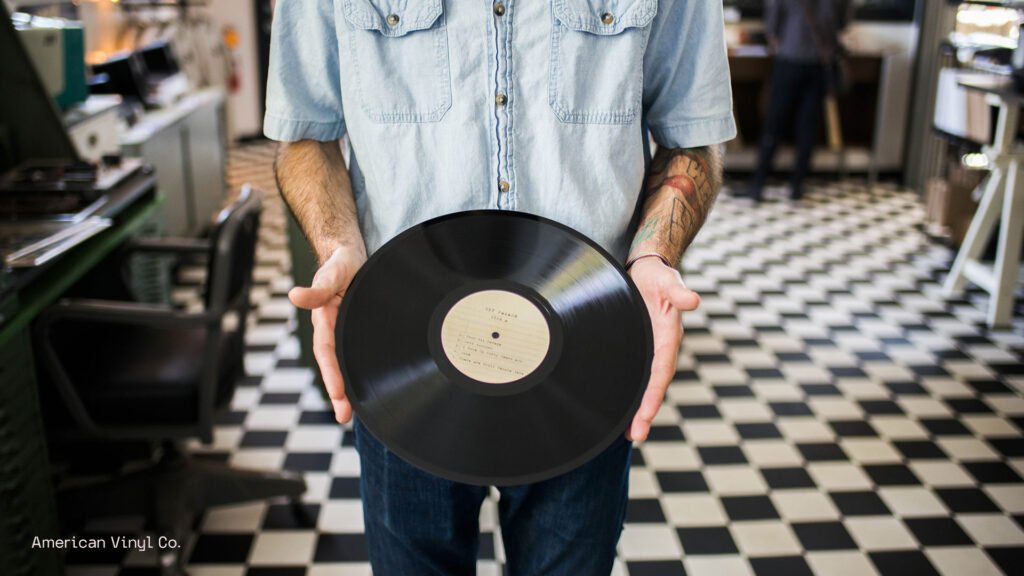
EXAMPLE
I discovered BFF early January when they started posting about their upcoming launch event. When I attended the launch event, I received a free BFF Friendship Bracelet in my wallet. I had no idea that I would be getting offers of 1.5eth ($4,200) 3 months later! I’d never sell it though — it’s my all-access pass to all things BFF in the future (including BFF Con 2023!), and their roadmap is packed and promising!
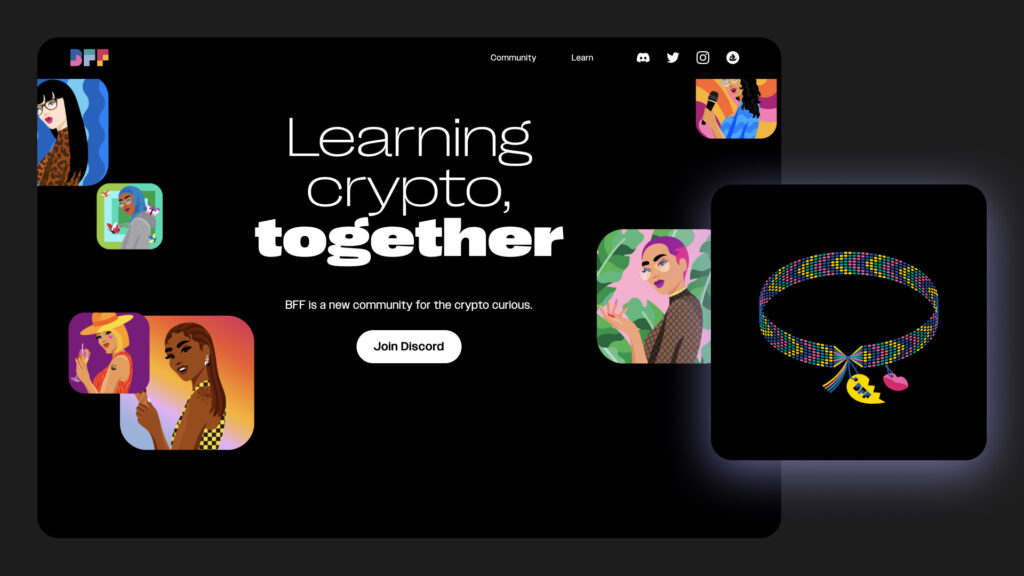
Above all, NFT technology created a market for things nobody knew how to sell before. Brands (and individuals) can’t risk not participating.
Did I convince you?
Let me know on Twitter!

